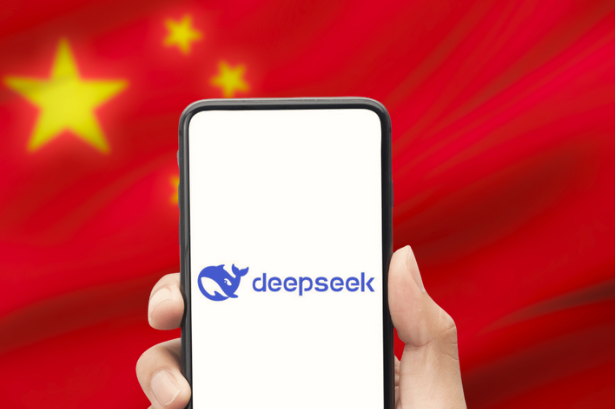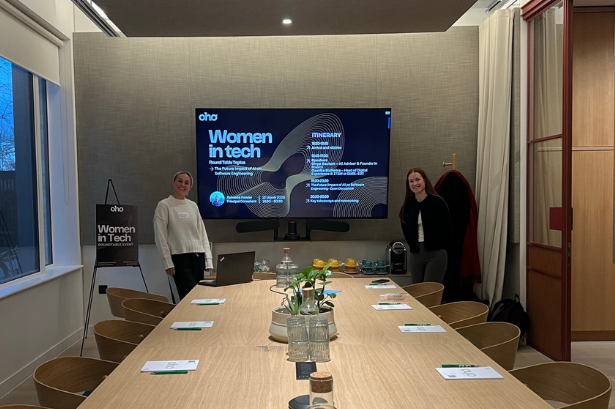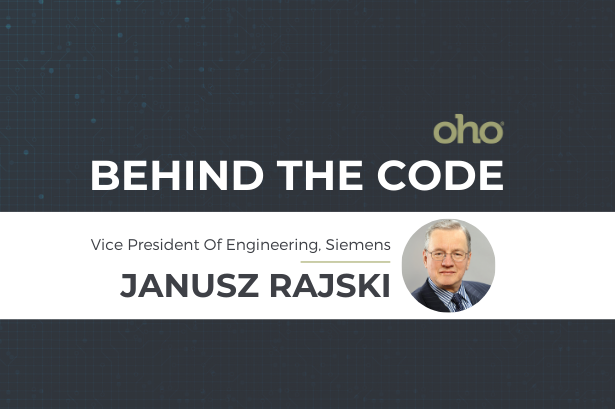What is DeepSeek, and How is it Shaking Up AI?
11 Feb, 20255 mins
You’ll have probably heard plenty of chatter over the last week or two about DeepSeek, a Chinese generative artificial intelligence (genAI) start-up that has caused a huge stir amongst big tech companies especially in the US.
But what is DeepSeek, and why has it caused so much controversy?
Let’s take a look into this genAI start-up, why it’s suddenly become the talk of the town, and assess what it means for AI, machine learning and innovation going forward. In our view, while lots of big tech companies are perhaps justifiably worried about what DeepSeek means for their businesses, the emergence of lower-cost, more efficient AI tools can only be a good thing as far as innovation is concerned.
What is DeepSeek?
DeepSeek is a Chinese genAI start-up that creates large language models (LLMs) – the neural networks that underpin AI platforms like ChatGPT (which is named after GPT, the LLM that powers it).
One of these models, DeepSeek-R1, launched on 10 January 2025. By 27 January, it had become the most-downloaded free app on the iOS App Store in the US – overtaking ChatGPT for the title.
News also broke that DeepSeek-R1 could perform comparably to ChatGPT at certain mathematical and logic-based tasks.
This had a huge impact on Western tech companies. Nvidia’s share price fell 17% in a day, and companies like Meta and Microsoft were hit with a flurry of questions from industry analysts about what the implications were for their businesses.
Why was DeepSeek’s launch so alarming for these companies? Basically, there are two reasons, though they are deeply interconnected.
Firstly, DeepSeek-R1 was very cheap to train; its final training run reportedly cost less than $6m, compared to the $100m equivalent for OpenAI's GPT-4 in 2023.
Secondly, this training took place on relatively basic computer chips (and not many of them). Rather than the cutting edge Nvidia GPUs that GPT and other Western LLMs, like Meta’s Llama, are trained on, DeepSeek runs on less advanced Huawei chips.
DeepSeek’s impact on the US and the stock market
Using Huawei chips does more than bring DeepSeek’s costs down. It circumvents strict controls that the US government (under both Donald Trump and Joe Biden) has put in place to try to limit the export of advanced hardware to China, precisely to limit America’s great rival’s ability to develop its own domestic AI industry.
So Nvidia and Broadcom, two companies that have seen massive gains in their share prices as Western investors assume that tech companies will be locked into buying their high-end chips for decades as AI adoption grows, have suddenly been confronted by the notion that, actually, their products might not be needed and that advanced AI could be developed without enormous spend on their products.
That’s just the tip of the iceberg, though. If DeepSeek can develop sophisticated AI without Nvidia chips, then there is seemingly nothing the US can do to prevent China rivalling its own AI industry.
That’s awkward, because the week before DeepSeek became the most-downloaded free app, Donald Trump had committed to investing $500bn into boosting the US’ AI infrastructure. If China can produce models that rival GPT for just $6m, is that money well-spent?
Controversies around DeepSeek
However, there are a few things to keep in mind about DeepSeek before we get too carried away.
Firstly, the $6m doesn’t refer to its total development costs, just those of its final training run. It’s unknown how much in total the model cost to develop, but the total figure is likely far higher.
At any rate, DeepSeek relies largely on other developments that had come before it, such as access to Llama, which is open-source. So, arguably, much of the heavy lifting had already been done by Meta.
There are also several legal concerns and controversies surrounding DeepSeek. OpenAI and Microsoft (a large investor in the start-up) are pursuing legal action asking whether or not DeepSeek illegally accessed OpenAI data in its development.
DeepSeek’s adherence to privacy laws in Europe and the US are also unclear. In fact, that’s probably something worth bearing in mind if you have downloaded DeepSeek, or are thinking of doing so! Italian, Belgian and Irish authorities have already opened up probes into the company’s data handling methods, and Italy has blocked it from processing personal data.
And, being a Chinese product, DeepSeek is subject to “benchmarking” by the Chinese government – meaning it won’t answer questions on topics Beijing deems controversial, such as Tiananmen Square.
Why DeepSeek is good for innovation
Ultimately, though, DeepSeek marks an important step in the development of AI. Costs of new technology fall over time, often dramatically.
When computers were first invented, they were so enormous and expensive that they could only be owned by big institutions, like university laboratories. Over time, they have become cheap enough that more than half the world’s population owns one, and small enough to fit in our pocket.
At CES earlier in January – mere days before DeepSeek’s launch – Nvidia launched Project DIGITS, a personal AI supercomputer. DeepSeek’s arrival on the scene shows that it is now possible to produce powerful AI models at fairly low costs.
In other words, this is the democratisation of AI in process. Perhaps you don’t need to be a big tech giant to become a leader in this tech anymore – start-ups on relatively tight budgets can now compete with the major players.
This democratisation “will accelerate the UK AI landscape further”, according to Mark Cheung, a corporate finance expert at Kreston Reeves who specialises in helping AI start-ups raise funding. This could be a benefit to some of the UK’s up-and-coming AI start-ups, like Synthesia, an AI video company whose Series D funding round earlier this month made it the UK’s most valuable start-up.
“The much lower cost of foundation models and the move towards open sourcing are catalysts for more innovation and greater choice,” William Tunstall-Pedoe, Founder and CEO of London-based deeptech UnlikelyAI, told Sifted.
Greater access increases competition, and that’s good for everyone – even the incumbents that are being challenged. Mark Zuckerberg said during Meta’s earnings call days after DeepSeek shook the US stock market that “I think there’s a number of novel things that they did that I think we’re still digesting. And there are a number of things that they have advances that we will hope to implement in our systems. And that’s part of the nature of how this works, whether it’s a Chinese competitor or not.
“I kind of expect that every new company that has a launch is going to have some new advances that the rest of the field learns from. And that’s sort of how the technology industry goes.”
Sam Altman, CEO of OpenAI, put it more succinctly when he posted on X that “it's legit invigorating to have a new competitor!”



